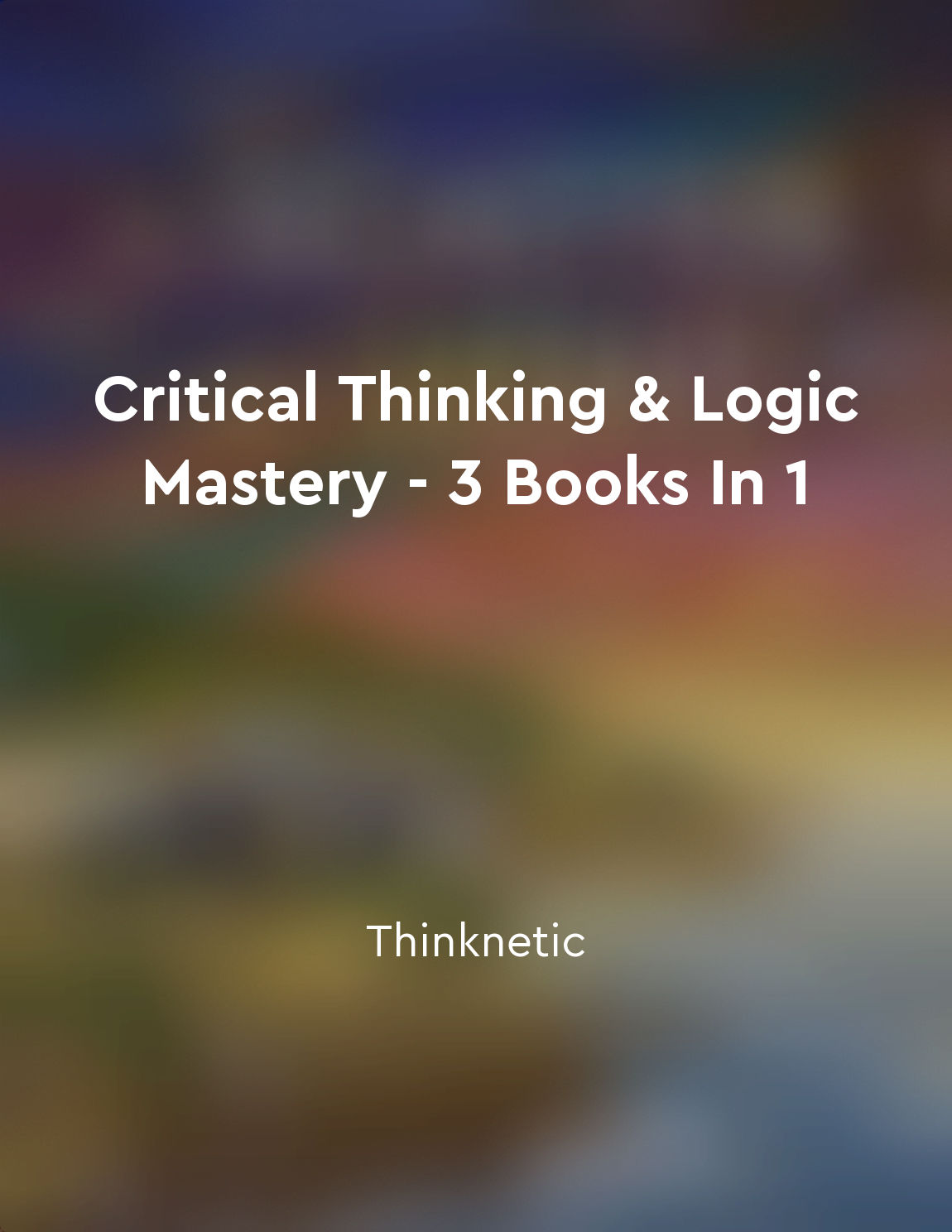Brain tricks can lead to irrational behavior from "summary" of Your Brain Is Playing Tricks on You by Albert Moukheiber
The human brain is a complex and powerful organ that can sometimes play tricks on us, leading to irrational behavior. These tricks are a result of cognitive biases, which are systematic patterns of deviation from norm or rationality in judgment. These biases often manifest in our decision-making processes, causing us to make choices that may not always be in our best interest. One common cognitive bias is the confirmation bias, where we seek out information that confirms our preexisting beliefs and ignore evidence that contradicts them. This can lead us to make decisions based on incomplete or inaccurate information, ultimately resulting in irrational behavior. Another cognitive bias is the availability heuristic, which is the tendency to overestimate the importance of information that is readily available to us. This can cause us to make decisions based on vivid or memorable information, rather than on a comprehensive analysis of all relevant factors. The anchoring bias is yet another cognitive bias that can lead to irrational behavior. This bias occurs when we rely too heavily on the first piece of information we receive (the "anchor") when making decisions. This can cause us to be overly influenced by initial information, even if it is irrelevant or misleading. Furthermore, the sunk cost fallacy is a cognitive bias that can lead us to make irrational decisions based on past investments, rather than on the current situation. This bias can cause us to continue investing time, money, or resources into something that is no longer worthwhile, simply because we have already invested in it.- These cognitive biases can significantly impact our behavior and decision-making processes, leading us to make choices that may not always be rational or logical. By being aware of these biases and actively working to counteract them, we can strive to make more informed and rational decisions in our daily lives.
Similar Posts
Understand your financial history
To get a handle on your finances, you need to take a deep dive into your financial history. This means understanding your past ...
Emotions: key driver of decisionmaking
Emotions play a fundamental role in the decision-making process. Our choices are often guided by how we feel rather than by rat...
Developing critical thinking habits
Developing critical thinking habits is an essential skill that can be cultivated through practice and dedication. It involves c...

Rational individuals are open to changing their beliefs in the face of new evidence
In order to be considered rational, individuals must be willing to revise their beliefs when presented with new evidence that c...
Managers need to be aware of their cognitive biases
The concept of managers needing to be aware of their cognitive biases is crucial in the field of decision making. As human bein...

The pursuit of pleasure and avoidance of pain guide much of our behavior
The desire for pleasure and the fear of pain are two of the most primal and universal forces that shape human behavior. From th...

Acknowledging counterarguments strengthens one's position
When presenting an argument, it is essential to acknowledge counterarguments that may arise. This practice not only demonstrate...
Lowcost index funds are a smart choice for most investors
Low-cost index funds have been proven to be an intelligent choice for the majority of investors. Instead of trying to beat the ...
Derivatives can be used for hedging and risk management
Derivatives play a crucial role in institutional investment management by allowing investors to hedge against various risks. He...
Constraints can lead to creative solutions
Constraints are often seen as obstacles to progress. However, in reality, they can actually be the catalyst for innovative thin...


